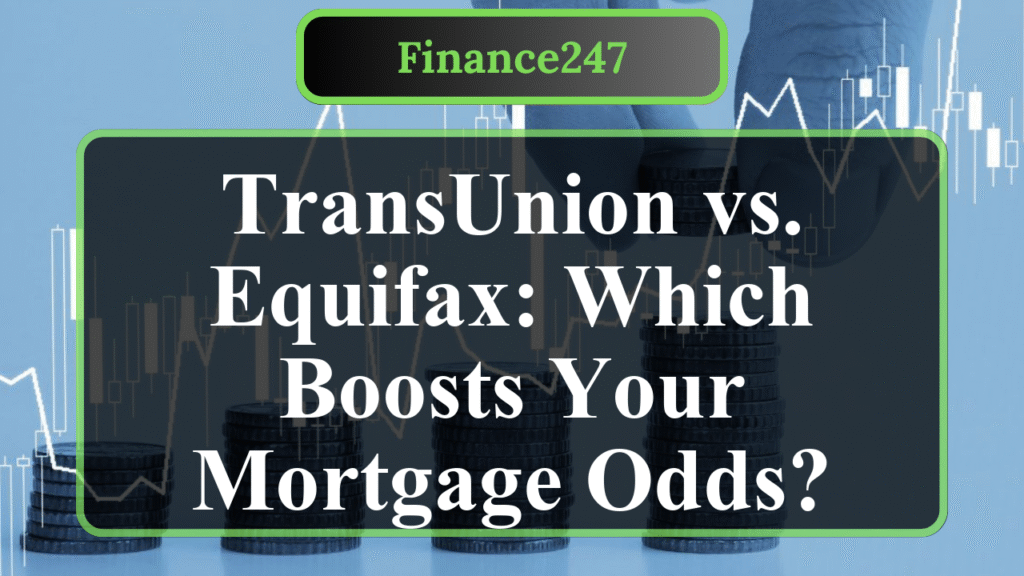TransUnion and Equifax offer robust credit monitoring services, but which is better for homebuyers? This article compares their features, pricing, and suitability for mortgage preparation. TransUnion provides daily updates and VantageScore 3.0, while Equifax aligns closer to FICO scores. We explore costs, identity protection, and three-bureau monitoring to help homebuyers choose the best service for their needs.
Comparing TransUnion and Equifax Credit Monitoring for Homebuyers
When preparing to buy a home, your credit score is a critical factor that influences mortgage approval and interest rates. TransUnion and Equifax, two of the three major U.S. credit bureaus, offer credit monitoring services to help you track and protect your credit. This article compares their offerings to determine which is better suited for homebuyers, focusing on features, pricing, and relevance to the mortgage process.
Features Tailored for Homebuyers
TransUnion’s credit monitoring service, priced at $29.95 per month, includes unlimited access to your credit report and VantageScore 3.0, updated daily. It offers credit locking, identity theft protection with up to $1 million in insurance, and personalized debt analysis to help improve your credit profile. These features are valuable for homebuyers who need to monitor rapid changes in their credit or address errors before applying for a mortgage. TransUnion’s TrueIdentity, a free service, provides basic monitoring, credit locking, and alerts but lacks the depth of the paid plan.
Equifax’s Complete Premier plan, at $19.95 per month, includes daily Equifax credit report access, VantageScore 3.0, and three-bureau monitoring (Equifax, TransUnion, and Experian). It also offers identity theft protection with up to $1 million in insurance and stolen funds replacement. The Equifax Complete Family plan, at $29.95 per month, extends these features to a second adult and up to four children, which may appeal to homebuyers with families. Equifax’s scoring model is noted for resembling the FICO score more closely, which is widely used by mortgage lenders.
Credit Score Models and Mortgage Relevance
Mortgage lenders typically use FICO scores, specifically FICO 2, 4, or 5, depending on the bureau. Equifax’s scoring model is designed to approximate FICO scores, potentially giving homebuyers a closer estimate of the score lenders will see. TransUnion, however, uses VantageScore 3.0, which may differ significantly from FICO due to its unique weighting of factors like payment history and credit utilization. For homebuyers, Equifax’s alignment with FICO makes it slightly more relevant, though neither score is identical to what lenders use. Checking all three bureau reports (available through Equifax’s premium plans or free at AnnualCreditReport.com) ensures a comprehensive view, as lenders often pull the median score from Experian, Equifax, and TransUnion.
Pricing and Value
TransUnion’s $29.95 monthly plan is pricier than Equifax’s $19.95 Complete Premier plan, though both offer robust identity protection and monitoring. Equifax’s three-bureau monitoring provides broader coverage, which is critical for homebuyers, as discrepancies between bureaus can affect loan approval. For example, a lender might report a payment to TransUnion but not Equifax, leading to score differences. Equifax’s lower cost and multi-bureau access make it more cost-effective for those preparing for a mortgage. However, TransUnion’s daily updates and personalized analysis may appeal to homebuyers actively working to boost their scores.
Identity Protection and Fraud Alerts
Both services offer identity theft protection, which is crucial for homebuyers who may be sharing sensitive financial information during the mortgage process. TransUnion provides instant alerts and up to $1 million in identity theft insurance, while Equifax includes dark web scanning and dedicated ID restoration specialists. Equifax’s fraud alerts and credit lock apply only to its own reports, whereas TransUnion’s credit lock covers both TransUnion and Equifax reports, offering a slight edge for those seeking broader protection.
Data Accuracy and Reporting Differences
TransUnion and Equifax may have different information due to varying lender reporting practices. For instance, Equifax often reports longer credit histories (up to 81 months) compared to TransUnion’s 96-month history, which can impact scores. A 2024 analysis found that 42% of credit reports showed a score difference of over 40 points between the two bureaus, often due to missing data like a mortgage reported to one bureau but not the other. Homebuyers should review both reports to identify and dispute inaccuracies, as errors can lower scores and jeopardize mortgage approval.
Which Is Better for Homebuyers?
Equifax’s Complete Premier plan offers better value for homebuyers due to its lower cost, three-bureau monitoring, and closer alignment with FICO scores. Its comprehensive coverage helps detect discrepancies across all major bureaus, which is essential when preparing for a mortgage. TransUnion’s service, while robust, is better suited for those prioritizing daily updates and personalized credit improvement tools. Homebuyers should also leverage free weekly reports from AnnualCreditReport.com to supplement either service, ensuring a complete picture of their credit profile.
Disclaimer: This article is for informational purposes only and does not constitute financial, tax, or legal advice. Consult a professional advisor for personalized guidance. Information is sourced from TransUnion, Equifax, and industry reports, but accuracy is not guaranteed.


